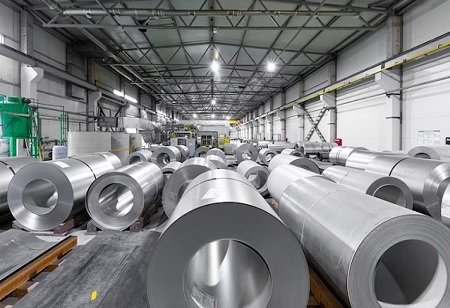
Tata Steel, the oldest producer of the main infrastructure alloy in Asia, aspires to achieve net carbon neutrality by 2045 by sourcing at least one-fourth of its energy needs from renewable sources by FY30. At its facilities across the nation, Rajiv Mangal, vice president for safety, health, and sustainability, said Tata Steel planned to do this using a combination of hydrogen injections and renewable energy sources like solar and wind.
The company successfully injected hydrogen at one of its Jamshedpur blast furnaces earlier this year in an effort to reduce carbon emissions by 7–10% for each tonne of basic steel produced. Hydrogen transportation is incredibly expensive and dangerous, so we wanted to test it. We wanted to be certain, so we did our research. We no longer have those concerns, so we are considering either a 15 tonne per day hydrogen facility or having someone else supply it to us, according to Mangal.
"The cost of hydrogen will not be less than $5 to $6 per kg on the market. We need it to be in the neighbourhood of $1 to be economically feasible in a steel mill. Therefore, hydrogen technically has the ability to fix the issue, but not financially," he stated. One of the carbon-intensive industries in the world, the production of steel is responsible for 7-9% of total carbon emissions. How to produce steel in a more environmentally friendly manner is a topic of discussion that is spreading throughout the industry. This involves using scrap to make steel and switching to renewable energy sources in place of traditional energy sources.
Tata Steel and Tata Power have a renewable energy agreement that will be operational by FY25. This will apply to energy sources including solar, wind, and others. Tata Steel intends to source 25% of its energy from green sources. In addition, the steel giant is preparing a pilot at its Kalinganagar plant to produce syngas that can take the place of coke in blast furnaces. By the end of February, the pilot should be prepared.
We use cookies to ensure you get the best experience on our website. Read more...